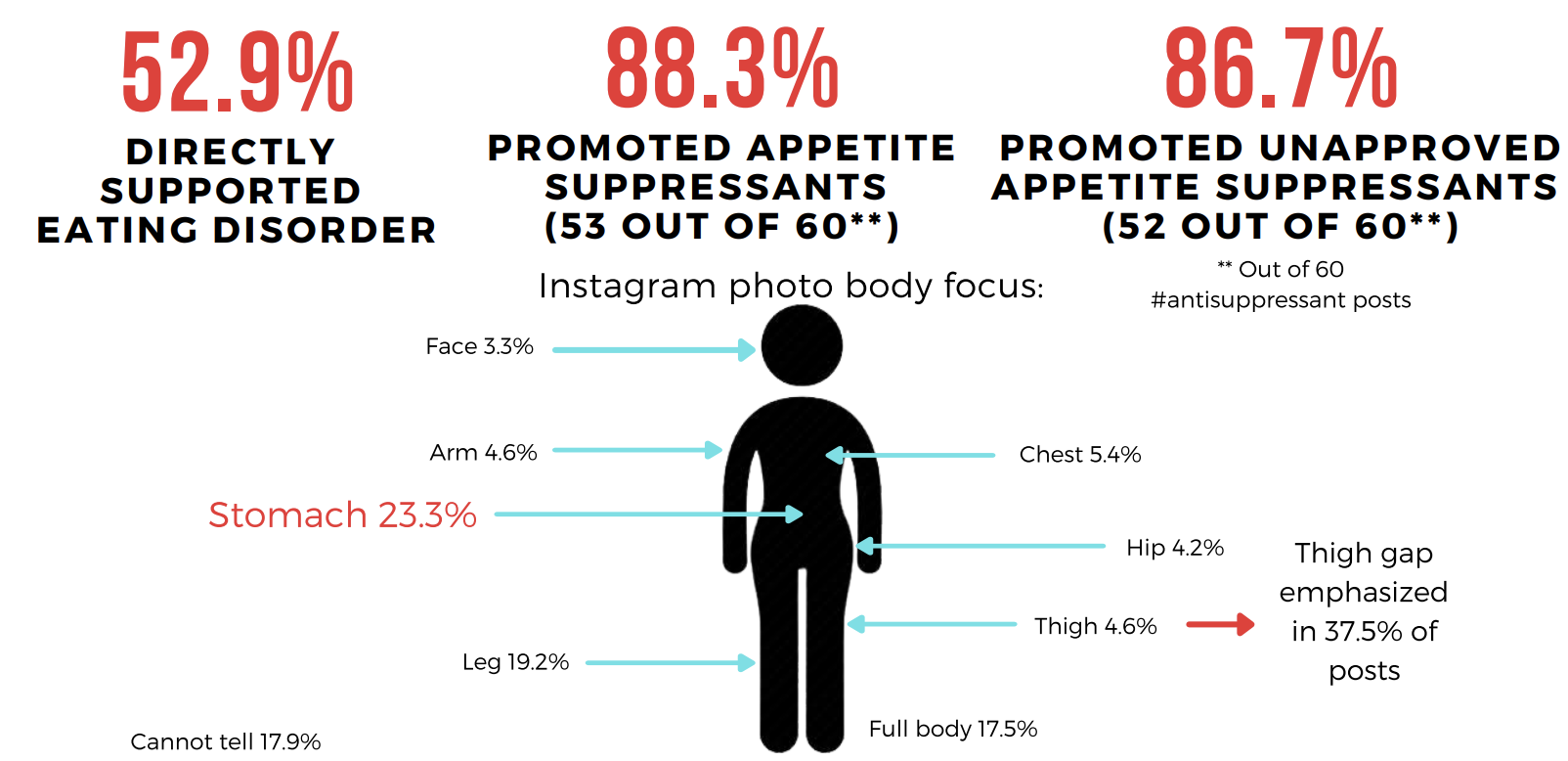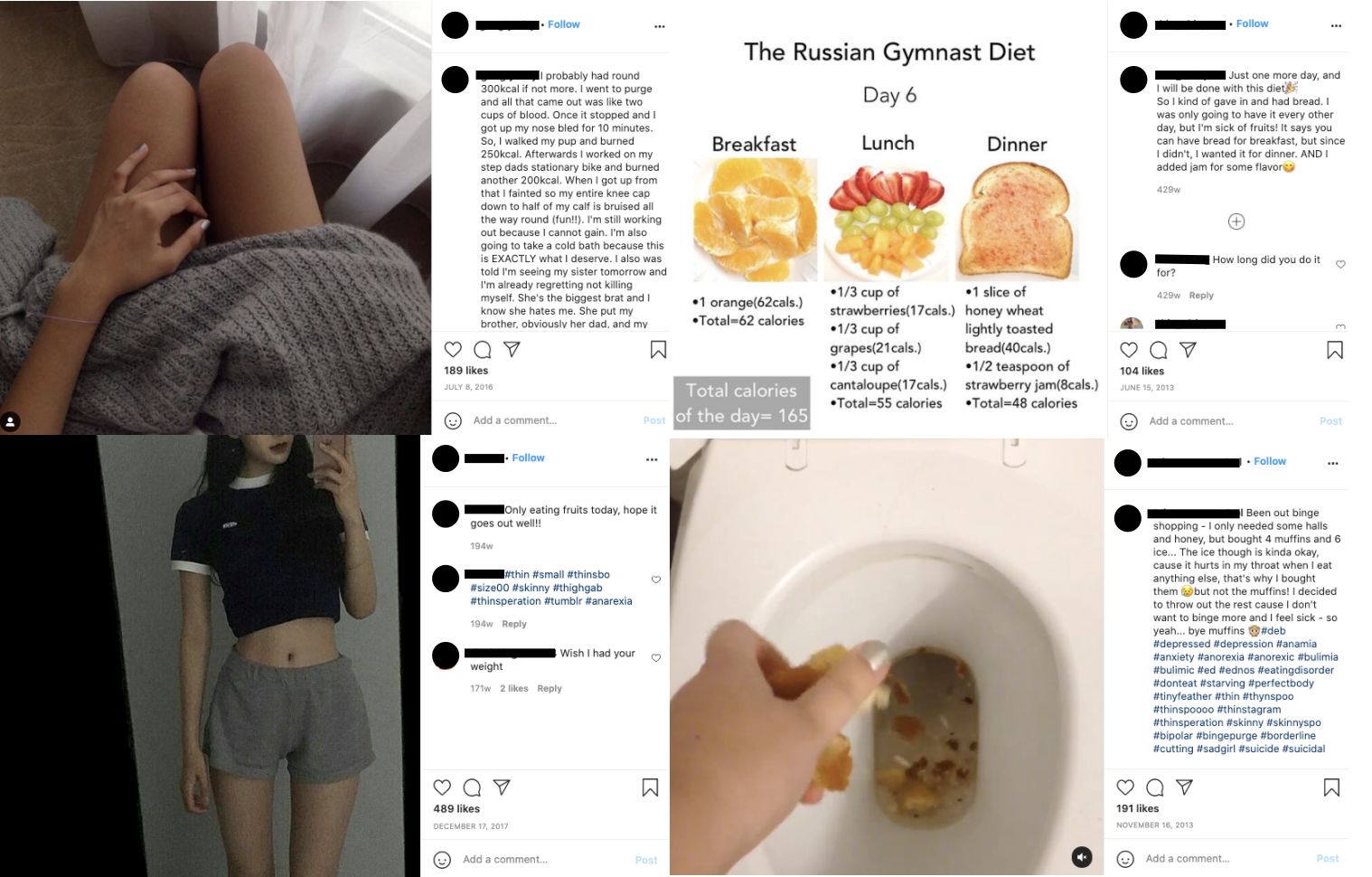Instagram Is Still Promoting Eating Disorders and Unproven Diet Pills to Teens
Want the best of VICE News straight to your inbox? Sign up here.
On the day that Facebook will once again face questions from Congress over the damage its products are causing to children, new research shows that one of those products, Instagram, is awash with posts promoting eating disorders, unproven diet supplements, and skin whitening products.
The damning research, shared with VICE News by activist group SumOfUs ahead of publication, found that companies promoting unproven services, practices, and products can easily target young women, especially women of color, by using hashtags linked to these trends.
While Instagram has banned some of the most obvious hashtags related to eating disorders, the researchers found users have found that those seeking to push their products can easily get around these restrictions by using creative hashtags, some of which have racked up over 10 million posts.
Using some of the most popular hashtags, the researchers looked at 240 sample posts linked to eating disorder hashtags and found that more than half of the posts promoted eating disorders while nearly 90% of them pushed unproven appetite suppressants.
“The posts demonstrate how Instagram enables and encourages users to engage in negative talk, self-harm, and extreme dieting,” the report’s authors write.
The researchers also found that plastic surgeons are targeting young people by positively framing the results of plastic surgery and ”collaborating” with influencers to promote these procedures on Instagram—though it’s unclear if that collaboration includes payment.

Linked to this, the researchers found that over 80% of the posts about skin whitening that they analyzed were promoting unproven products, with nearly half of them directly supporting skin whitening.
“This research confirms that, despite Facebook’s promises to curb such content, Instagram remains flooded with toxic content that poses an immediate danger to the lives of its users, and particularly to teenagers and young people,” the report’s authors wrote.
“The platform tracks and targets some of the most vulnerable in society—young teens and people of color—with content that heavily promotes unrealistic and unattainable Western beauty standards, and offers false solutions like plastic surgery, skin whitening, and extreme dieting to trigger body image issues and lower self-esteem.”
The report was published hours before Facebook’s latest appearance before Congress. Antigone Davis, Facebook’s global head of safety, will appear before the Senate committee on commerce, science, and transportation at a hearing entitled: “Protecting Kids Online: Facebook, Instagram, and Mental Health Harms.”
The hearing was triggered by a report in the Wall Street Journal earlier this month that revealed that the company was aware of how toxic Instagram could be to the mental health of young girls.
The article, based on an internal report commissioned by Instagram, found that the photo-sharing app could adversely affect girls’ mental health. The report showed that one in three girls said it made them feel worse about their bodies, while teenagers told Facebook’s own research team, unprompted, that the app was to blame for increased anxiety and depression.
The company said the Wall Street Journal report was “simply not accurate” but Facebook has paused the development of its Instagram for Kids product, which is aimed at children under the age of 13.
SumOfUs hopes its own report will put even more pressure on the company.
“The findings detailed here should make legislators everywhere sit up and take notice,” Emma Ruby-Sachs, executive director at SumOfUs, wrote in the report. “They provide yet more evidence that Facebook and other global tech corporations cannot be trusted with the safety and wellbeing of their billions of users. It is time for lawmakers to act.”

Body image issues were already a major problem among young people globally, leading them to develop eating disorders and seek out plastic surgery. But the pandemic has exacerbated these issues considerably.
For example, one study found that the number of adolescent patients aged 10-23 with eating disorders has doubled since the start of the pandemic, while the National Eating Disorders Association has seen a 40% increase in calls to its helpline since March 2020.
As for plastic surgery, there has been a 70% increase in bookings and treatments over the course of the pandemic.
The report highlights how individuals and businesses on Instagram try to take advantage of and monetize these real problems faced by teenagers.
“Is it possible for a thin patient to get BBL & liposuction?” one plastic surgeon wrote in a post on Instagram. “Can a thin patient look better with liposuction? YES! They can.”
This is not the first time Instagram has been criticized for its handling of posts about eating disorders. Earlier this year it was forced to apologize for promoting diet pills to people with eating disorders, yet little appears to have changed on the platform since then.
“Facebook's recommender systems and algorithms amplify the most salacious content to maximize 'engagement' which it then monetizes,” Ruby-Sachs wrote. “Company executives have little motivation to remove harmful content, as it risks undercutting profits. And without any transparency, audits into its technology and processes, and zero to none accountability measures, the company has done little to genuinely tackle the serious threats its platforms pose to society.”
Facebook did not immediately respond to VICE News’ request for comment on the report’s findings.
#DmtDailyNews
via https://www.DMT.NEWS
David Gilbert, Khareem Sudlow
